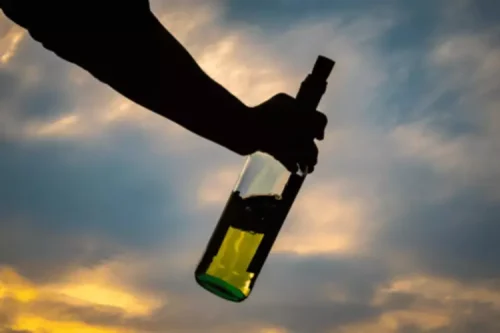Heres How to Hydrate Your Body After Drinking Alcohol

One probably involved craving cold water and urinating a few shades darker than normal, while the other probably involved feeling like your head was in a vice and being unwilling to get out of bed. Dehydration can lead to feelings of fatigue and weakness, which can impair physical and mental performance, impacting everyday activities such as work and exercise. But you still have just as many salts floating alcoholism symptoms in this reduced volume of water. One of the hormones made by the posterior pituitary gland is called vasopressin, or anti-diuretic hormone (ADH). Third, we humans seem to prefer to drink our alcohol in 10 gram lumps. Ten grams of alcohol is about 12.5 millilitres (but you can call it 10 mL and still be fairly accurate).

Can you Survive on Beer Instead of Water?

It’s important to understand the causes of alcohol dehydration and to take steps to prevent it, such as drinking water while consuming alcohol and moderating alcohol intake. When you’re drinking more than usual, it’s important to remember to consume alcohol responsibly (for both your health and safety!). Alcohol is a diuretic, which means it moves fluid out of your body and can easily dehydrate you.

Moderate Dehydration
Between your Thursday night wine and your Saturday night cocktail, you have a fairly good sense of what kind of hangover you’re in for on Friday and Sunday mornings. But beyond the type of alcohol you’re imbibing, you might not realize how much dehydration enters into the hangover equation. When you consume alcohol, the effects of alcohol on the hippocampus make the formation of long-term memories less likely.
Recipes for Mediterranean Dishes and Beer Cocktails: Pairing Guide and Flavor Profiles
- When the body is dehydrated, it can lead to a reduction in blood flow to the brain, which can impair cognitive function and increase the risk of memory problems and other cognitive impairments.
- And while the non-alcoholic fluids in beer, wine, and liquor are inherently hydrating, they’re not necessarily hydrating enough to offset the effects of alcohol-induced dehydration.
- Your body has detectors that can sense both the saltiness of your water, and the volume of the water.
- Our goal is to empower you with knowledge so you can enjoy alcohol responsibly without compromising your hydration status.
- Finding the right supplements can be overwhelming with so many options on the market.
- When we consume alcohol, it can stimulate our sweat glands and increase perspiration.
Drinking water before, during, and after alcohol consumption can help prevent dehydration. Water can help replace lost fluids, maintain electrolyte balance, and aid kidney function. When it comes to consuming alcohol, it’s important to take steps to mitigate the potential dehydration effects.
Other Risks Associated with Alcohol Consumption
According to science, about 90% of alcohol is eliminated by our liver, but 2-5% of alcohol leaves our body through urine, sweat, or breath. And since alcohol increases our heart rate, it makes us sweat more, which accelerates how fast we become dehydrated. When you’re feeling a hangover, it’s important to explore the root cause. Furthermore, alcohol consumption can increase the frequency of urination, causing the body to lose more https://ecosoberhouse.com/ electrolytes.
It’s probable that a cocktail such as a vodka and soda is less dehydrating than a straight shot of vodka. Dehydration is also a big part of why you get a hangover after drinking too much. If you have a full stomach, it can essentially slow down the absorption of alcohol. If you are experiencing serious medical symptoms, please see the National Library of Medicine’s list of signs you need emergency medical attention or call 911. The frontal cortex is the brain’s center for higher-order functions like planning, decision-making, and impulse control.
This is partly because our soil is incredibly depleted, so our fruits and veggies don’t have the mineral content they once did. Additionally, our tap water is heavily processed and filtered, leaving most of the minerals behind. Excessive drinking can also lead to a buildup of a toxic substance called acetaldehyde. When your body can’t get rid of acetaldehyde quickly enough, you may experience your body getting rid of this substance the next morning (usually by vomiting) 5. Alcohol suppresses the hormone vasopressin, which governs how much you urinate.

Beyond its direct influence on hydration levels, alcohol can also affect various body functions, further contributing to dehydration. Milk is also a good choice to help you rehydrate, assuming your hangover hasn’t put you off dairy. The same 2016 study from the American Journal of Clinical Nutrition found that milk was more hydrating than water, sports drinks, coffee, tea, and a handful of other common beverages 6. “Essentially, when you’re does alcohol dehydrate you dehydrated, you’ll feel alcohol’s effects sooner and for longer,” Pfau says. When you don’t adequately replace this excess loss of fluids, you become dehydrated.
What Causes Alcohol Dehydration?
Consuming one beer leads to a 62% increase in urine produced compared to having a glass of water. Alcohol-induced dehydration is more likely to occur if an individual drinks alcohol on an empty stomach or does not drink enough non-alcoholic fluids while consuming alcohol. People who are already at risk of dehydration should avoid or limit their alcohol consumption.
- It’s important to understand the causes of alcohol dehydration and to take steps to prevent it, such as drinking water while consuming alcohol and moderating alcohol intake.
- In summary, alcohol’s impact on kidney function is multifaceted.
- Alcohol, while often a social lubricant, can have significant impacts on your body’s hydration levels due to its diuretic properties.
- When you consume alcohol, and it suppresses vasopressin, your body starts losing more fluid than usual through increased urination.
When the body is dehydrated, it can struggle to regulate its temperature, which can cause additional fatigue and lethargy. This can be particularly problematic during hot weather or when engaging in physical activity. So these salts are now more concentrated in the reduced volume of water that you have when you are dehydrated. It’s a small molecule and gets very quickly through the walls of the gut into the bloodstream and then to the brain. After all, beer is about 95 per cent water and only five per cent alcohol.
